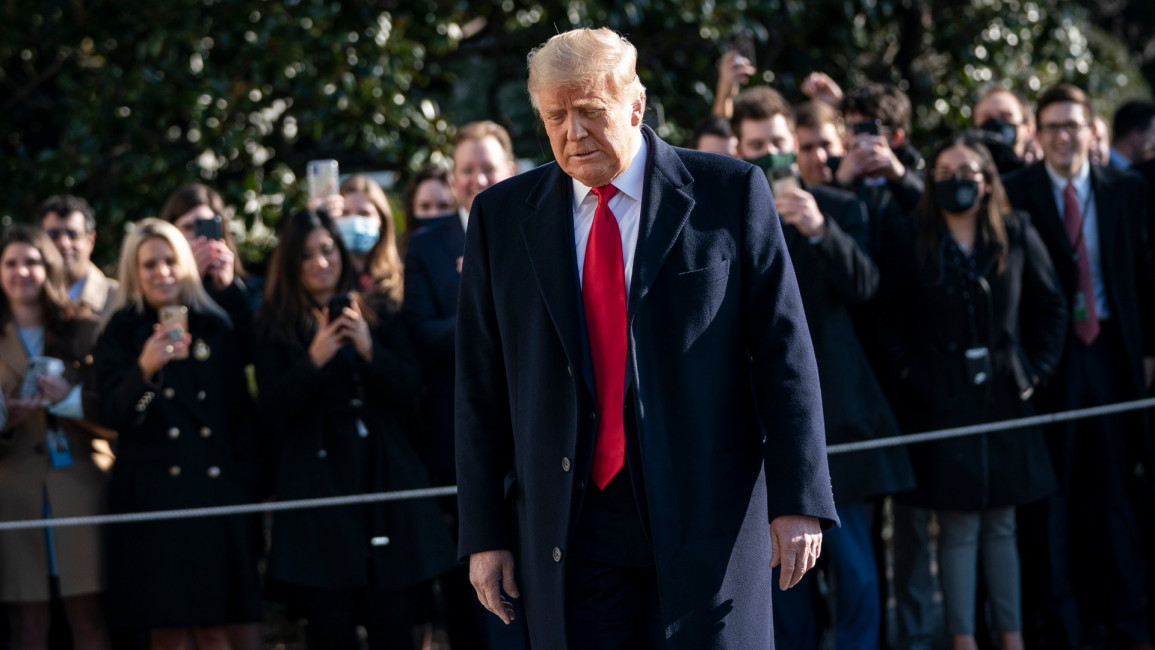Trump's journey from election defeat to second impeachment
Former US president Donald Trump has doggedly denied he lost the November election, and faces a second impeachment trial next week on charges he incited a mob to attack the Capitol and overturn his defeat.
Here is a timeline of events leading up to the trial:
Election defeat
Despite the risks posed by the coronavirus pandemic sweeping the country, record numbers of Americans turn out to vote in the November 3 election.
Trump had spent the preceding months warning of election fraud and trying to block mail-in voting, which he feared would massively favor his Democratic opponent Joe Biden.
Because so many ballots are mailed in, the final results are delayed, though Trump is reportedly furious when conservative channel Fox News declares the traditionally Republican state of Arizona for Biden on election night.
Within days, Trump's lawyers, led by former New York mayor Rudy Giuliani, embark on a series of fruitless court cases to challenge the election results.
Biden declared winner
On November 7, Biden is declared the winner after flipping the historically Republican southern state of Georgia. In his acceptance speech that night, he calls for unity and holds out an olive branch to Trump supporters, many of whom believed the outgoing president's unsubstantiated claims that the election was stolen.
Twitter Post
|
"I understand the disappointment tonight. I've lost a couple of times myself. But now, let's give each other a chance," Biden said.
Georgia recounts begin
Under pressure from Trump, Georgia's Republican secretary of state Brad Raffensperger launches a hand recount of the Georgia ballots that confirms Biden's win. Trump demands an additional recount, which on December 7 shows Biden won the state by 11,779 votes.
'Will be wild!'
On December 19, Trump tweets to his 88 million social media followers to come to Washington on January 6, the day Congress is due to convene to confirm the election results in what is normally a symbolic, procedural event, for a "big protest in DC".
"Be there, will be wild!" he said.
Trump demands Georgia 'find' votes
On January 2, Trump calls Georgia's election overseer Raffensperger and begs him to find more votes to overturn Biden's victory. "What I want to do is this. I just want to find 11,780 votes," he says.
Mob storms the Capitol
Vice President Mike Pence releases a statement in which he declines Trump's unconstitutional demand that he reject the electoral college vote, as Congress gathers in the US Capitol to certify Biden's victory.
Trump tells a gathering of thousands of angry followers at the White House to march to the Capitol and "fight" for him.
The mob storms the building, causing lawmakers and Pence to flee in fear of their lives. Five people, including a police officer, die in the violence. After police and the National Guard restore order, Congress reconvenes and confirms the result.
Twitter ban
On January 8, Twitter, the defeated president's favorite channel of communicating with his followers, bans him from the platform indefinitely.
Second impeachment
On January 13, the House of Representatives impeaches Trump on grounds that he incited the insurrection. Ten Republicans vote with Democrats to back the motion.
His Senate trial is scheduled to begin on February 9, although it is unlikely that the 17 Republican senators needed to convict him will do so.
Leaving the White House
On January 20, Biden is inaugurated in front of the Capitol. Trump breaks with precedent and refuses to attend, instead flying to his Mar-A-Lago golf resort in Florida



